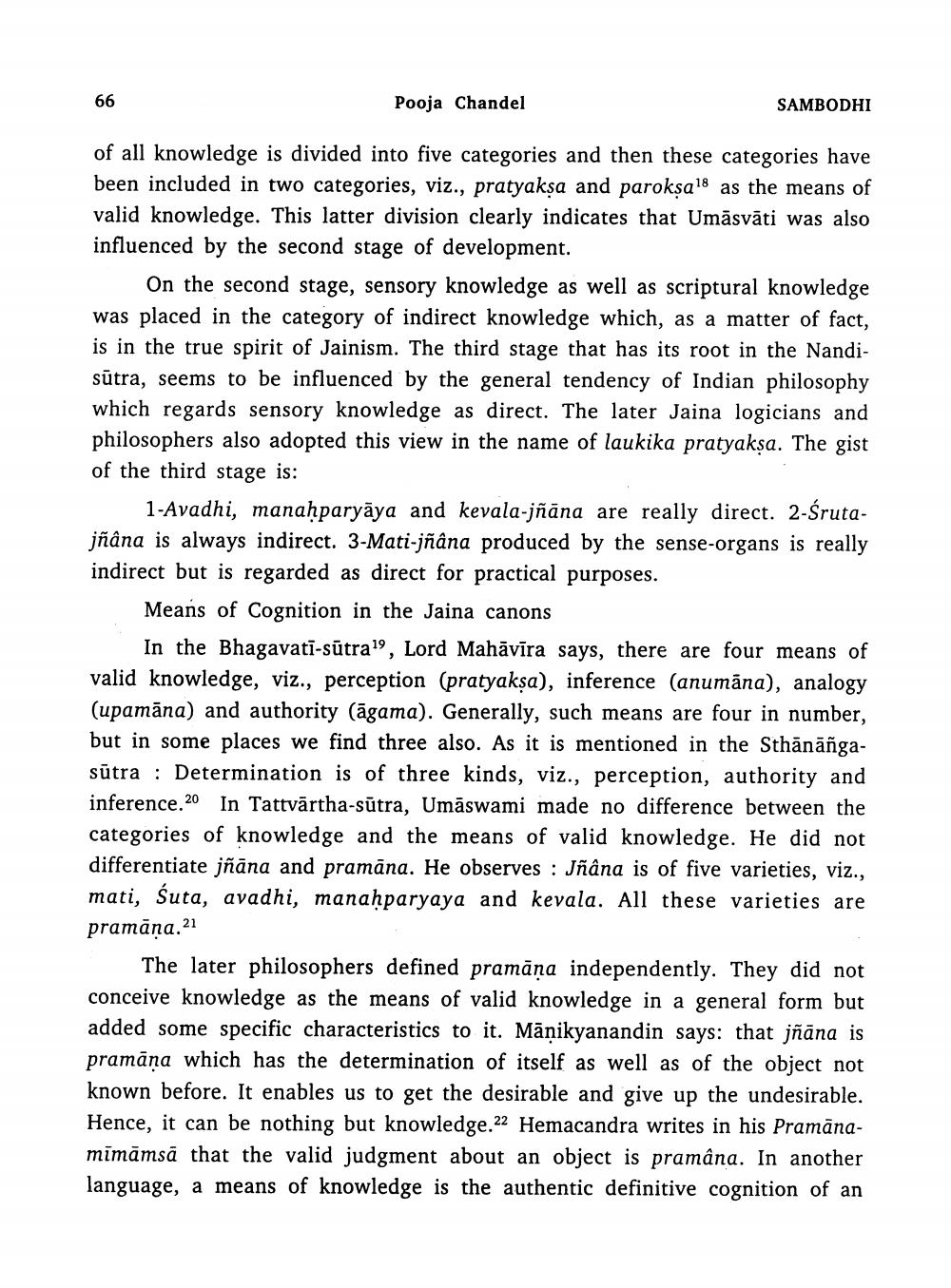________________
66
Pooja Chandel
SAMBODHI
of all knowledge is divided into five categories and then these categories have been included in two categories, viz., pratyaksa and paroksa18 as the means of valid knowledge. This latter division clearly indicates that Umāsvāti was also influenced by the second stage of development.
On the second stage, sensory knowledge as well as scriptural knowledge was placed in the category of indirect knowledge which, as a matter of fact, is in the true spirit of Jainism. The third stage that has its root in the Nandisūtra, seems to be influenced by the general tendency of Indian philosophy which regards sensory knowledge as direct. The later Jaina logicians and philosophers also adopted this view in the name of laukika pratyaksa. The gist of the third stage is:
1-Avadhi, manaḥparyāya and kevala-jñāna are really direct. 2-Śrutajñâna is always indirect. 3-Mati-jñâna produced by the sense-organs is really indirect but is regarded as direct for practical purposes.
Means of Cognition in the Jaina canons
In the Bhagavati-sūtra", Lord Mahāvīra says, there are four means of valid knowledge, viz., perception (pratyakşa), inference (anumāna), analogy (upamāna) and authority (āgama). Generally, such means are four in number, but in some places we find three also. As it is mentioned in the Sthānāñgasūtra : Determination is of three kinds, viz., perception, authority and inference.20 In Tattvārtha-sūtra, Umāswami made no difference between the categories of knowledge and the means of valid knowledge. He did not differentiate jñāna and pramāna. He observes : Jñana is of five varieties, viz., mati, Suta, avadhi, manahparyaya and kevala. All these varieties are pramāņa.21
The later philosophers defined pramāņa independently. They did not conceive knowledge as the means of valid knowledge in a general form but added some specific characteristics to it. Māņikyanandin says: that jñāna is pramāna which has the determination of itself as well as of the object not known before. It enables us to get the desirable and give up the undesirable. Hence, it can be nothing but knowledge.22 Hemacandra writes in his Pramānamīmāmsā that the valid judgment about an object is pramâna. In another language, a means of knowledge is the authentic definitive cognition of an




